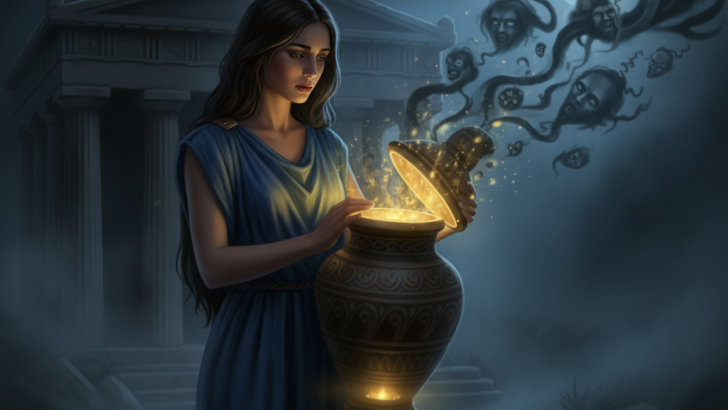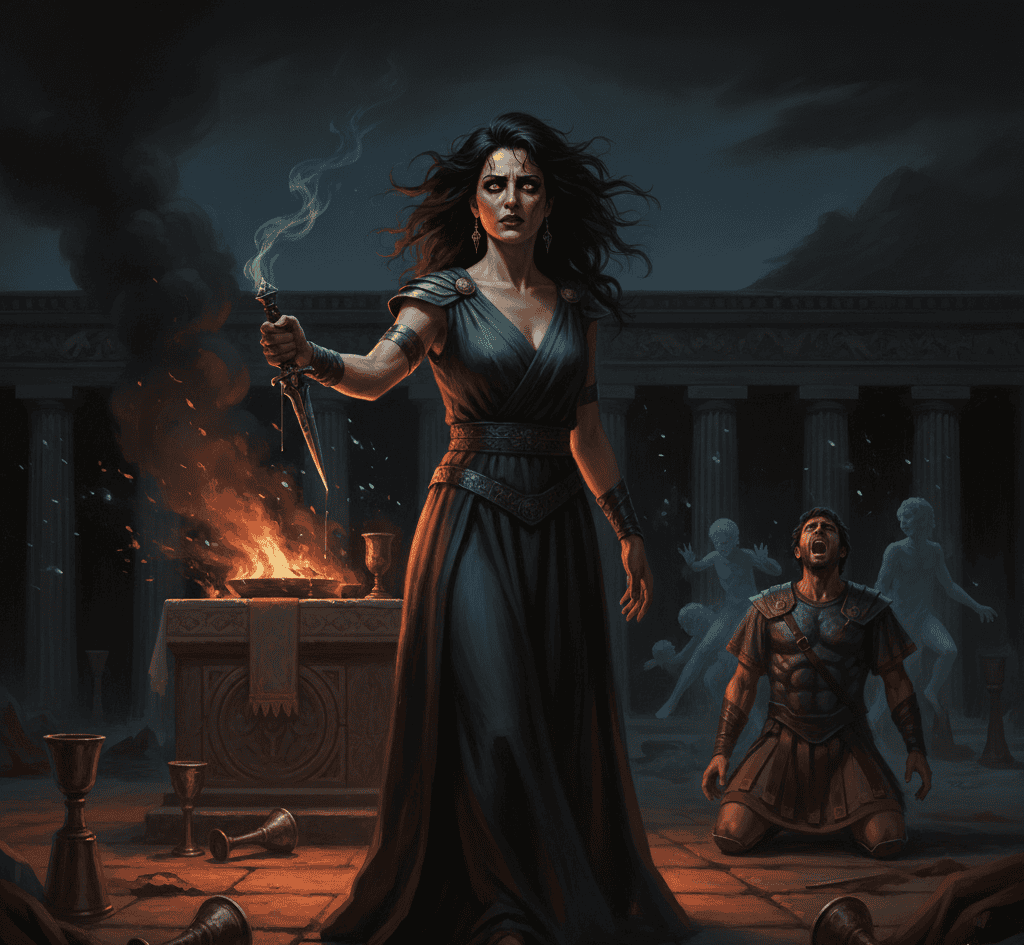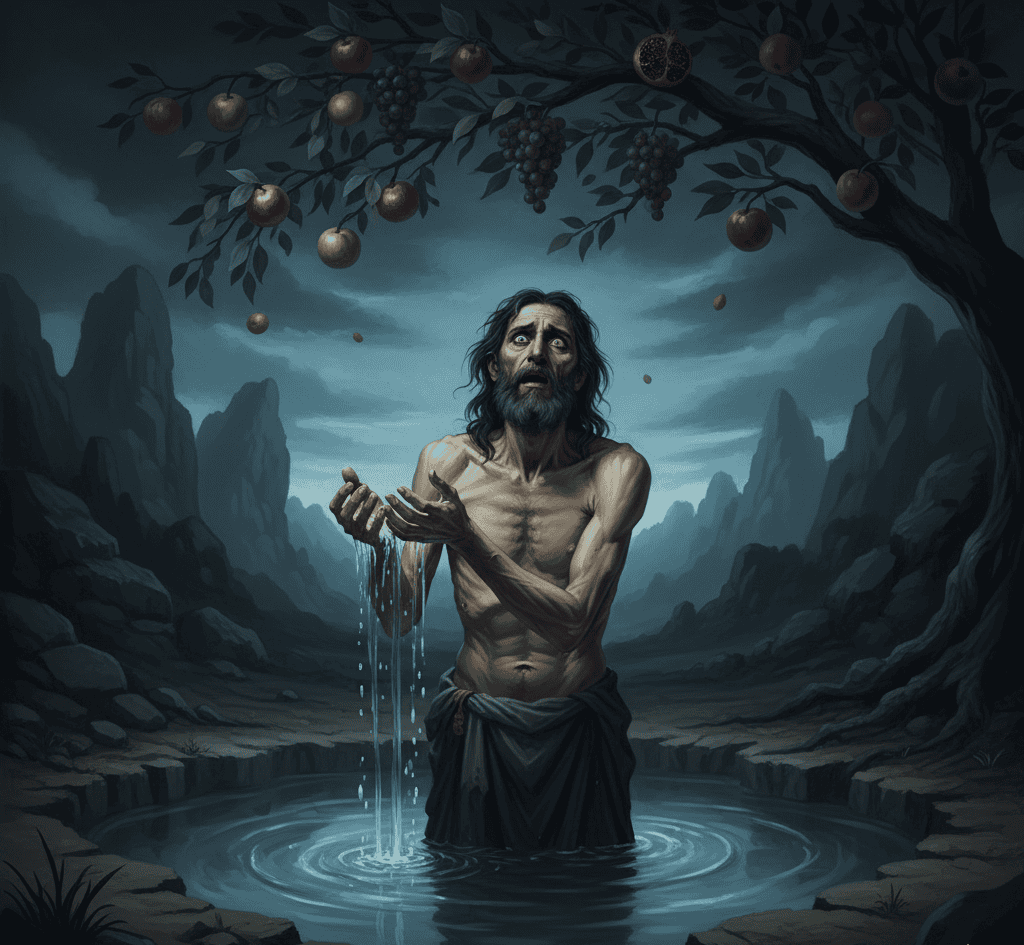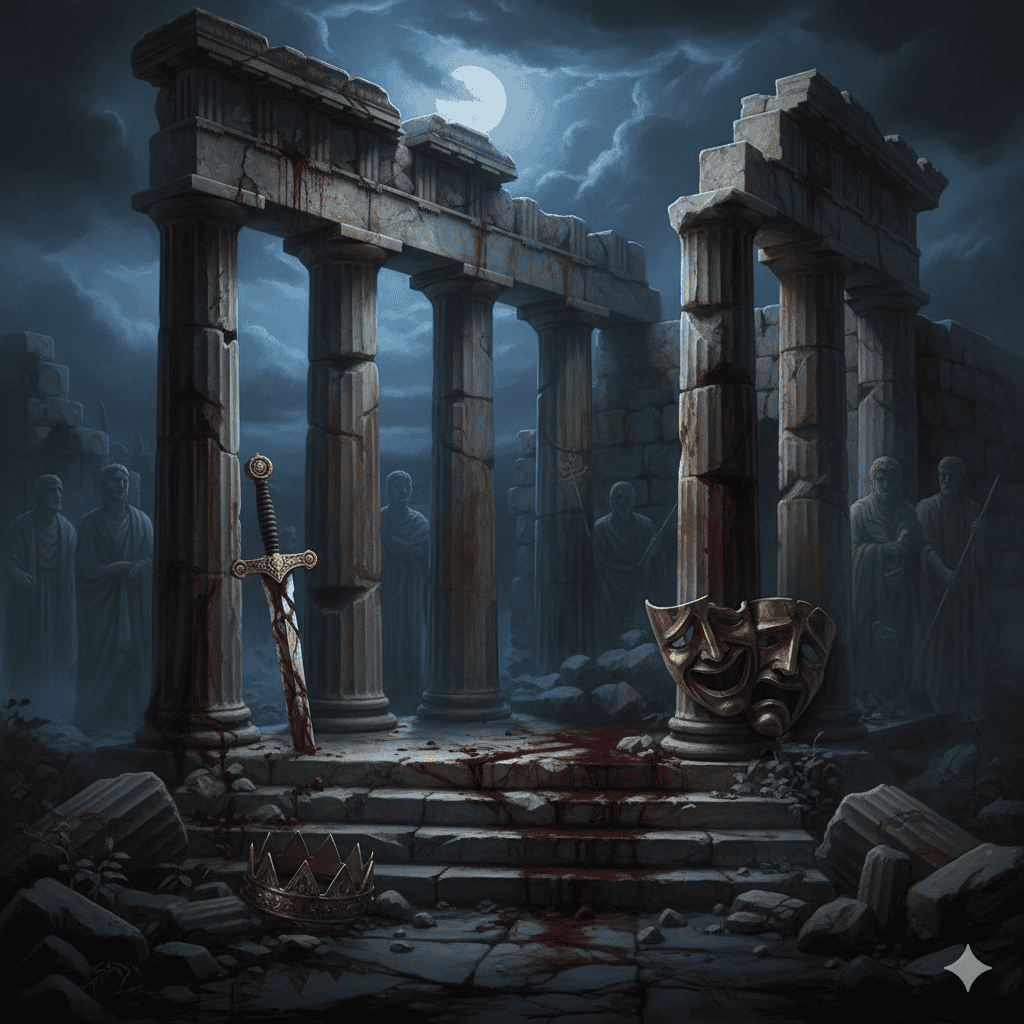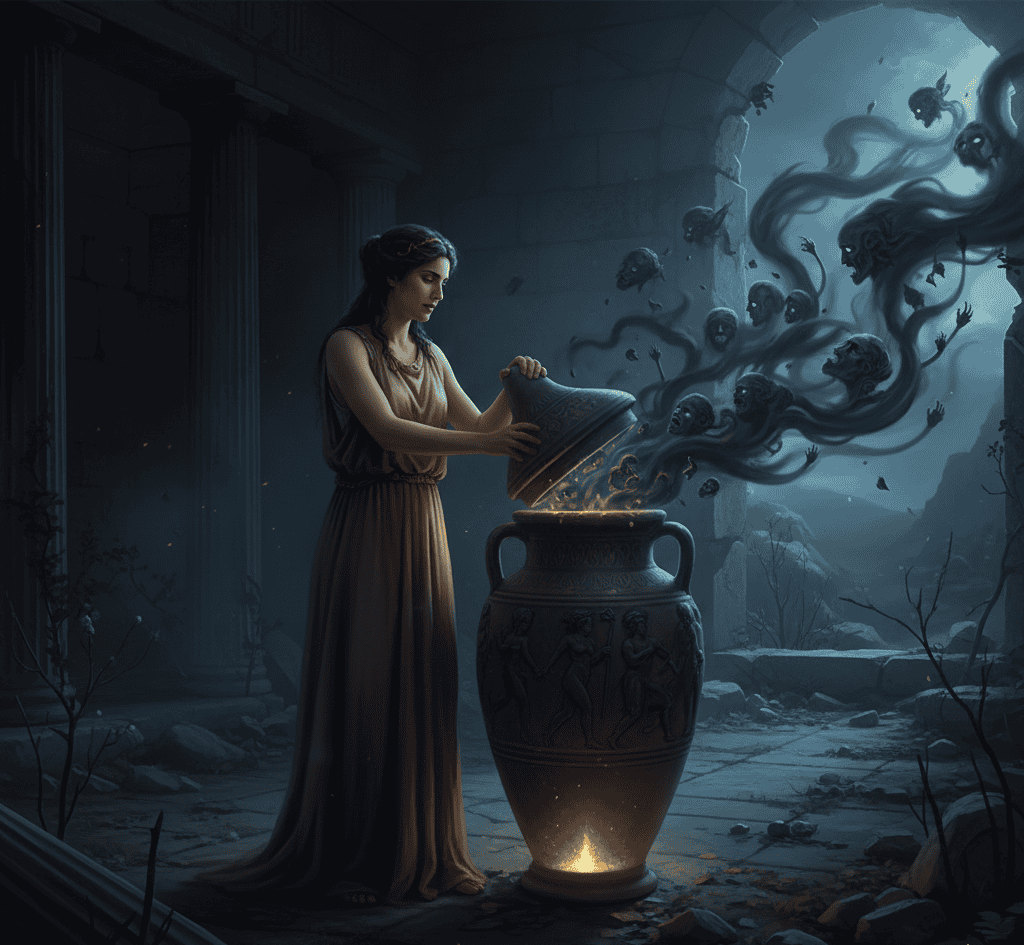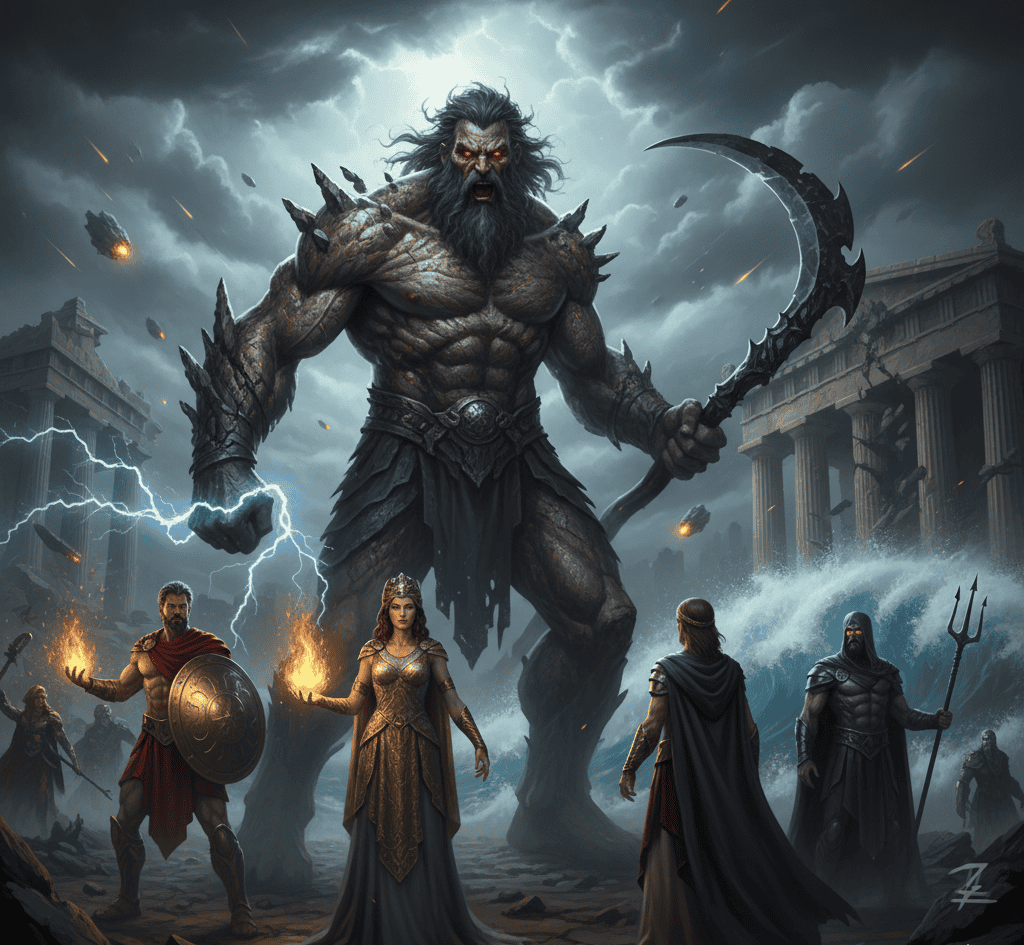When most people think of Greek mythology, they imagine dazzling heroes, wise gods, and epic love stories that shaped Western imagination.
Hollywood has taken those stories and turned them into tales of adventure and triumph. Yet, beneath the golden glow of Olympus lies a world filled with betrayal, curses, cannibalism, and eternal punishment.
These myths were never meant to simply entertain – they were cautionary tales that reflected the beauty and brutality of human nature.
Let’s uncover the darker side of Greek mythology that the movies often leave out.
The Truth About Prometheus and the Price of Defiance
In the movies, Prometheus is often shown as a brave rebel who gave fire to humankind out of pure compassion.
The reality, however, is far more painful. When Prometheus stole fire from Zeus, it wasn’t just an act of rebellion – it was an act of divine theft.
Zeus’s punishment was horrifying: Prometheus was chained to a rock while an eagle tore out his liver every single day, only for it to grow back at night.
His suffering was endless, meant to remind both gods and mortals that no one, not even a Titan, could defy Olympus without consequence.
The story wasn’t just about courage; it was about the heavy cost of standing against power.
Medea’s Wrath – When Love Turns Into Vengeance
Medea’s story is one of the most tragic and unsettling in all of mythology. A princess and sorceress, she fell deeply in love with the hero Jason and helped him steal the Golden Fleece.
She betrayed her own family for him, even killing her brother to help Jason escape.
But when Jason abandoned her for another woman, Medea’s love turned to rage. She killed the new bride – and even her own children – to punish Jason.
While movies often portray her as a jealous witch, ancient Greeks saw Medea as something more complex.
She was a woman destroyed by betrayal, forced into madness by the gods and her own pain. Her myth reminds us that love and fury can live side by side in the same heart.
The Tragic Feast of Tantalus
Few tales are as grotesque as that of King Tantalus. A favorite of the gods, Tantalus was invited to dine on Olympus.
But arrogance consumed him, and he decided to test the gods’ wisdom by serving them a stew made from his own son, Pelops.
The gods, horrified, punished him with an eternal curse: in the afterlife, Tantalus was placed in a pool of water beneath fruit trees.
Whenever he reached for food, it moved out of reach; whenever he bent to drink, the water disappeared.
From this story, we get the word “tantalize.” Behind the myth lies a chilling warning – greed and pride lead not to greatness, but to unending torment.
The Curse of the House of Atreus
If there was ever a family doomed by fate, it was the House of Atreus. Their story is one of endless revenge, bloodshed, and divine punishment.
After Tantalus’s sin, his descendants carried the curse for generations. Atreus killed his brother’s children and served them to him at a feast.
Agamemnon, Atreus’s son, sacrificed his own daughter to win a war. And when he returned home, his wife Clytemnestra murdered him in his bath.
The cycle of murder and revenge continued until the gods themselves intervened.
Hollywood versions of this myth focus on heroes like Agamemnon and Orestes, but the ancient Greeks saw something deeper – a lesson that some curses are too old and too heavy to ever break.
Pandora’s Jar of Sorrows
Pandora is often remembered as the first woman who opened a mysterious box and unleashed all the world’s evils.
But the real story is far more haunting. Zeus created Pandora as a trap for humanity after Prometheus’s theft of fire.
Her “box” was actually a jar filled with misery – disease, war, famine, and despair. When she opened it, all those curses escaped into the world, leaving only one thing inside: hope.
The myth shows that even in a world filled with darkness, hope is the one thing that keeps humanity alive.
Yet it also suggests that suffering was not an accident—it was a punishment carefully designed by the gods.
The Horror of Cronus and His Children
Before Zeus ruled Olympus, his father Cronus ruled the world and lived in terror of being overthrown.
To stop that from happening, he swallowed each of his children at birth. Hestia, Hera, Poseidon, Hades, and Demeter were all devoured whole.
Only Zeus escaped, hidden away by his mother, Rhea. When Zeus grew up, he forced Cronus to vomit up his siblings and led them in a war against their father.
The image of a god eating his own children may seem too dark for the screen, but to the ancient Greeks, it symbolized how fear can destroy even the most powerful.
The Lesson Behind the Darkness
Greek mythology was never meant to comfort. It was meant to reveal truths about human nature – our ambition, jealousy, greed, and longing for control.
The darkness in these myths isn’t there to shock but to teach. They show how easily mortals and gods alike can fall victim to pride, love, or vengeance.
In these ancient stories, even the mightiest figures are bound by fate, unable to escape their flaws.
Hollywood versions often smooth away those rough edges, turning gods into heroes and tragedies into triumphs.
But the true power of Greek mythology lies in its shadows. It reminds us that light only has meaning when we understand the darkness around it.
In the end, these myths endure not because they are beautiful, but because they tell us what it means to be human – flawed, fearful, and forever reaching for something beyond our grasp.

Sempre senti uma forte ligação com o Divino desde o meu nascimento. Como autora e mentora, a minha missão é ajudar os outros a encontrar o amor, a felicidade e a força interior nos momentos mais sombrios.

